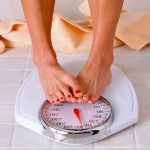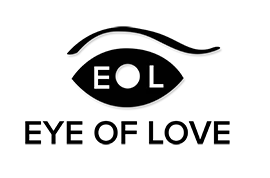 I’m a great believer that every diet plan offers a kernel of wisdom. But what about those who can’t stand the wheat—or, more specifically, gluten? Should people who have dumped bread entirely, not to mention pasta and cake, get out of the kitchen?
I’m a great believer that every diet plan offers a kernel of wisdom. But what about those who can’t stand the wheat—or, more specifically, gluten? Should people who have dumped bread entirely, not to mention pasta and cake, get out of the kitchen?
Gluten is a protein composite found in foods processed from wheat, barley and rye. It gives dough elasticity and helps it rise and keep its shape, and it can impart a chewy texture to foods.
Hard-core gluten rejectionists are quick to explain to anyone who will listen how great their regimen makes them feel. Which makes the rest of us wonder what we’re missing—besides bread, pasta and pastry, of course. As a nutritionist, it’s my job to present the scientific information alongside current eating trends because fads are not the same as fact.
The theory is that eliminating gluten will enhance digestion, rid the body of allergies and improve overall health. Plus you’ll lose weight. And consumers are convinced—I know this because grocers follow buyer demand and are responding by adding entire gluten-free sections in supermarkets around the country.
In my practice I’ve consulted with more than three hundred clients, and I have treated only one person with celiac disease, a serious condition where the immune system attacks grain-based protein. The resulting inflammation damages the intestinal lining, making it unable to allow nutrients to pass into the bloodstream.
An individual with unrecognized celiac disease is at risk of malnutrition, anemia, osteoporosis and even colon cancer. Fortunately, it’s quite unlikely that such a person will go undiagnosed since the pain and discomfort of celiac disease are unmistakable. Celiac disease is often hereditary and confirmed through biopsy of the intestine and blood testing for high levels of anti-tissue transglutaminase antibodies. About 1 percent of the population has celiac disease.
Then there’s gluten sensitivity—a less-acute reaction that affects about 10 percent of the population. This sensitivity doesn’t cause damage to the lining of the intestine or interfere with absorption but can cause indigestion, constipation, headache and fatigue. There’s no test for gluten sensitivity, so eliminating gluten may be the best way to uncover gluten sensitivity. If you don’t eat gluten and you feel better, chances are you’re gluten sensitive.
If you don’t eat gluten and you feel better, chances are you’re gluten sensitive.
For the remaining 89 percent of the population, eliminating gluten may not be worth the dough. Gluten-free sections in the supermarket continue to expand, but meanwhile gluten is everywhere. It’s in bread, pasta, baked goods, beer, flavorings made from grains, salad dressing, soups—and communion wafers.
Is There Any Good in Gluten?
Fiber is our friend. Whole grains offer lots of fiber to keep the plumbing going. Fiber also makes you feel full, faster, which counters weight gain. Fiber reduces the risk of heart disease and cancer by binding with cholesterol and absorbing dietary fat, so think again about avoiding wheat—one of the prime sources of fiber.
Great Grains
What to do if you want to avoid gluten but still want the benefits of eating grains and the fiber they provide? Gluten avoiders and gluten lovers alike have many tasty and nutritious options.
- Stick to healthy whole grains.
- Go for the whole oats found in oatmeal; they are rich in heart-protective antioxidants.
- When you eat rice, choose brown over white. It’s full of vitamin B and magnesium, which are beneficial for your nervous system.
- Upgrade plain couscous to the whole-grain version, and you’ll add an additional 5 grams of friendly fiber.
- Pop some organic popcorn for a snack that delivers B vitamins, magnesium and phosphorus to increase healthy gut flora and ward off heart disease and diabetes.
- Try quinoa, which is not really a grain but a seed. One cup of uncooked quinoa has 522 mg of heart-healthy omega fatty acids.
But Wait, I Wanna Lose Weight!
Let me repeat—eating fiber makes you feel full and counters weight gain. There’s no evidence that a gluten-free diet will turn the scales in a downward direction. As with any diet that eliminates many options within a major food group, you may slim down when you nix the grain—but only because you’ve removed so many food choices. And trust me, you’ll get tired of that in no time. (You have now been officially warned about a possible full-blown binge on, say, an entire box of cereal.)
The Kernel of Truth
If you don’t have celiac disease, rejoice. If you think you notice a little gluten sensitivity, modify your diet and see if you feel better.
Can the rest of us benefit by eating fewer cakes, cookies and refined carbs? You bet! Just aim for balance and moderation, and save the party foods for a special occasion.






